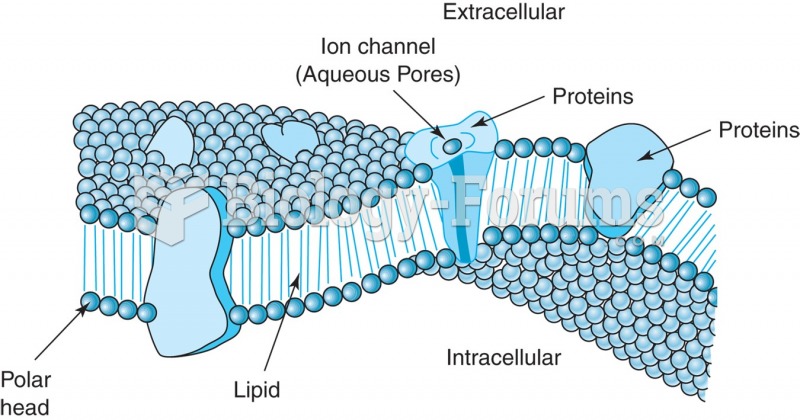Answer to Question 1
Correct Answer: 3
Rationale 1: Replication of the original DNA to form new DNA is necessary for bacterial replication. Antibacterials would inhibit this replication.
Rationale 2: Migration of the DNA strands to opposite sides of the cell is necessary prior to DNA replication. Antibiotics would inhibit this migration.
Rationale 3: A large number of enzymes are needed for DNA replication, and some of these enzymes are targets for antibiotics.
Rationale 4: The supercoil must relax and unwind in preparation for DNA replication. Antibiotics would inhibit this process.
Global Rationale: A large number of enzymes are needed for DNA replication, and some of these enzymes are targets for antibiotics. Replication of the original DNA to form new DNA is necessary for bacterial replication. Antibacterials would inhibit this replication. Migration of the DNA strands to opposite sides of the cell is necessary prior to DNA replication. Antibiotics would inhibit this migration. The supercoil must relax and unwind in preparation for DNA replication. Antibiotics would inhibit this process.
Answer to Question 2
Correct Answer: 1,2,3
Rationale 1: The client will need to learn the signs and symptoms of the serious adverse effects of nephrotoxicity and ototoxicity.
Rationale 2: Clinical applications for aminoglycosides are limited by their potential to cause nephrotoxicity and ototoxicity that can lead to kidney damage and hearing loss. These serious adverse effects make this nursing diagnosis a priority.
Rationale 3: Infection is a current problem and a priority.
Rationale 4: The risk of fluid volume deficit is not a priority unless measures to alleviate the risk fail.
Rationale 5: The risk for hyperthermia is not a priority unless it becomes an actual problem.
Global Rationale: The client must be educated about the serious adverse effects of this therapy as the risk of nephrotoxicity and ototoxicity are high. Infection is the patient's current problem, so this is a priority diagnosis. Risk of fluid volume deficit and hyperthermia are not current priorities.







